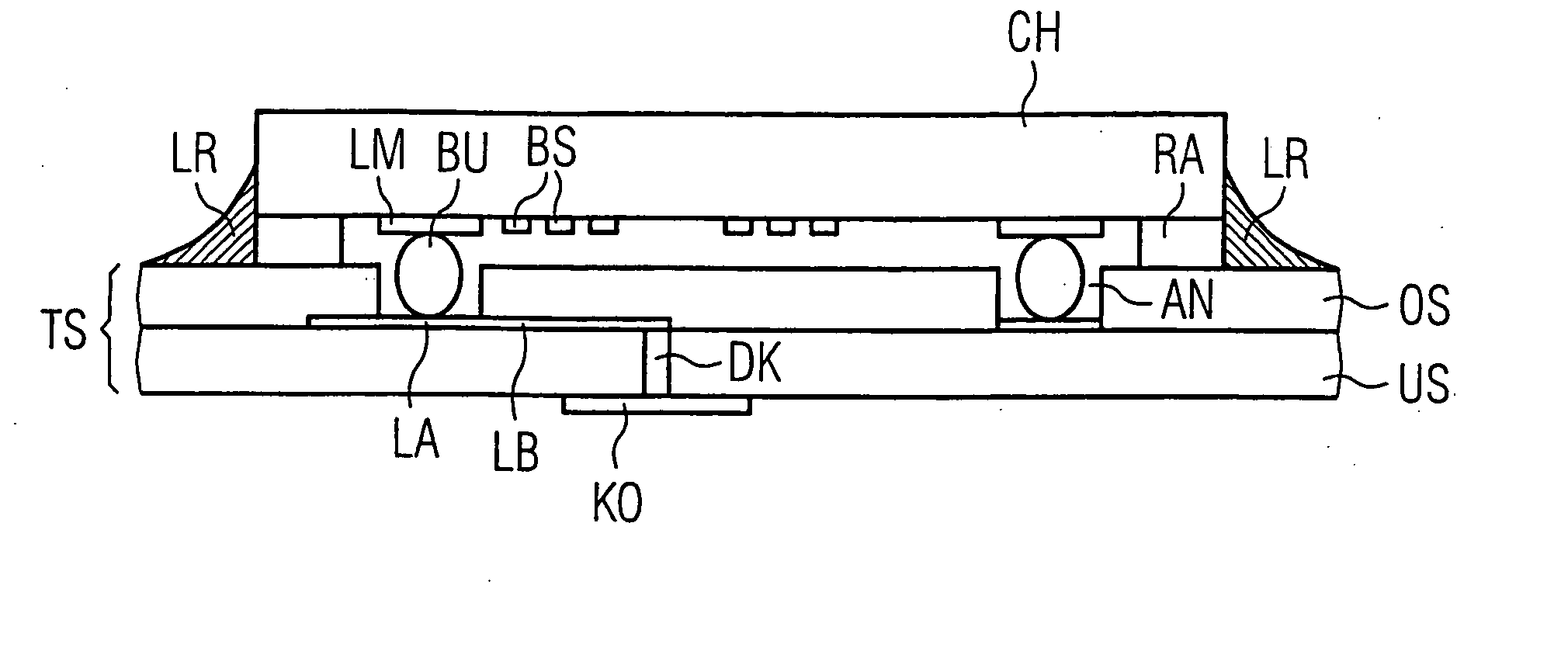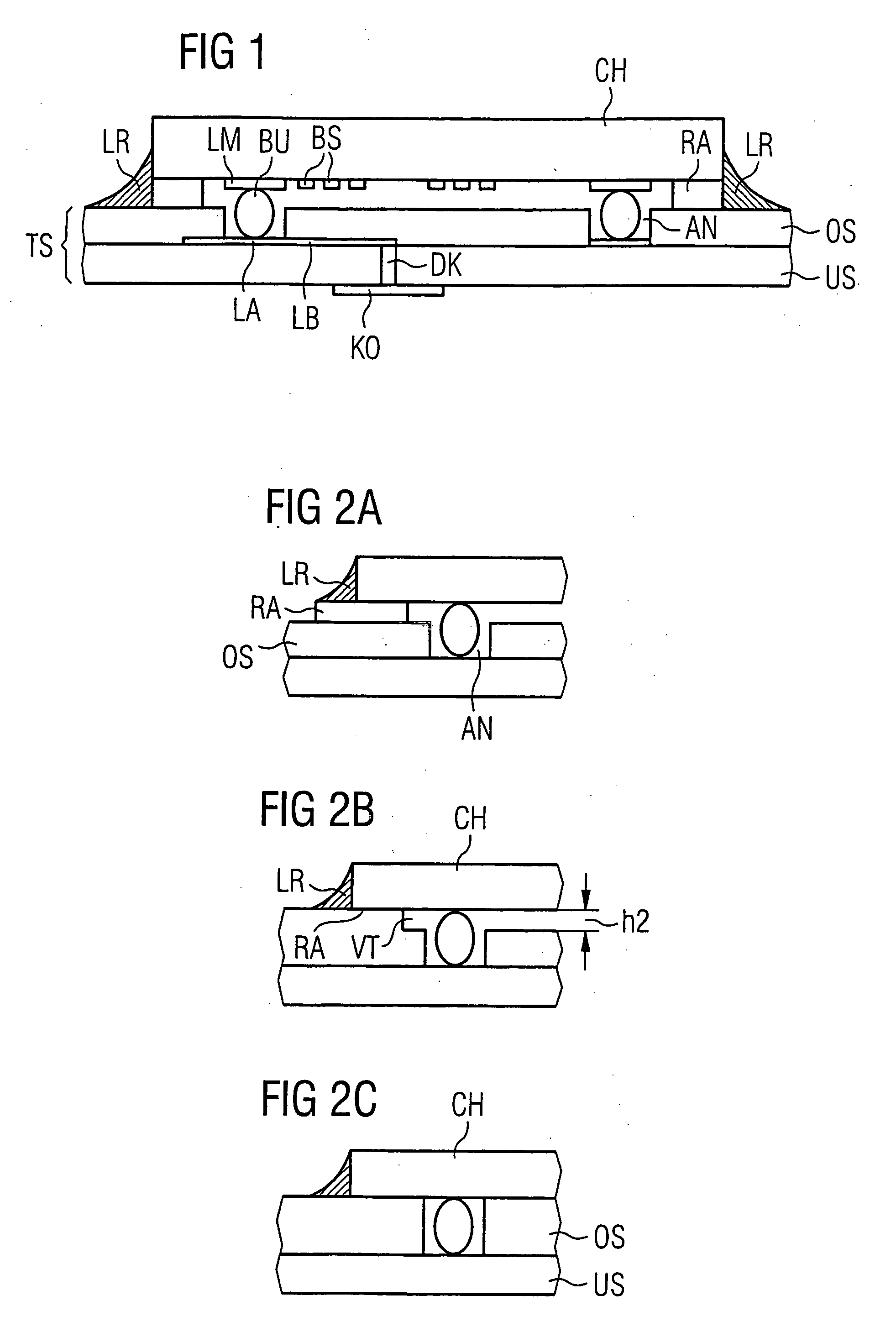Encapsulated component which is small in terms of height and method for producing the same
a technology of encapsulation and components, which is applied in the direction of coupling device details, electrical apparatus casings/cabinets/drawers, coupling device connections, etc., can solve the problems of moisture penetration into the component structure and problematic encapsulation, and achieve good contrast and bonding. good
- Summary
- Abstract
- Description
- Claims
- Application Information
AI Technical Summary
Benefits of technology
Problems solved by technology
Method used
Image
Examples
Embodiment Construction
FIG. 1 shows a first embodiment of an inventive component in schematic cross-section. The component is essentially formed of the chip CH, for example a piezoelectric substrate on whose one surface are applied component structures BS such as, for example, band-shaped metallizations of a surface wave component (SAW component). The chip is applied on a carrier substrate TS which comprises at least one upper layer OS and one lower layer US.
Recesses AN are provided in the upper layer OS of the carrier substrate TS. On the floor of the recesses, solderable connection areas LA are arranged over which the bump connections BU are arranged. The bumps BU connect the solderable connection areas LA with the solderable metallizations LM on the surface of the chip CH. The chip rests on a frame RA which defines the distance between the upper surface of the upper layer OS and the surface of the chip CH and prevents a direct contact of the component structures BS with the carrier substrate TS. In th...
PUM
 Login to View More
Login to View More Abstract
Description
Claims
Application Information
 Login to View More
Login to View More - R&D
- Intellectual Property
- Life Sciences
- Materials
- Tech Scout
- Unparalleled Data Quality
- Higher Quality Content
- 60% Fewer Hallucinations
Browse by: Latest US Patents, China's latest patents, Technical Efficacy Thesaurus, Application Domain, Technology Topic, Popular Technical Reports.
© 2025 PatSnap. All rights reserved.Legal|Privacy policy|Modern Slavery Act Transparency Statement|Sitemap|About US| Contact US: help@patsnap.com



